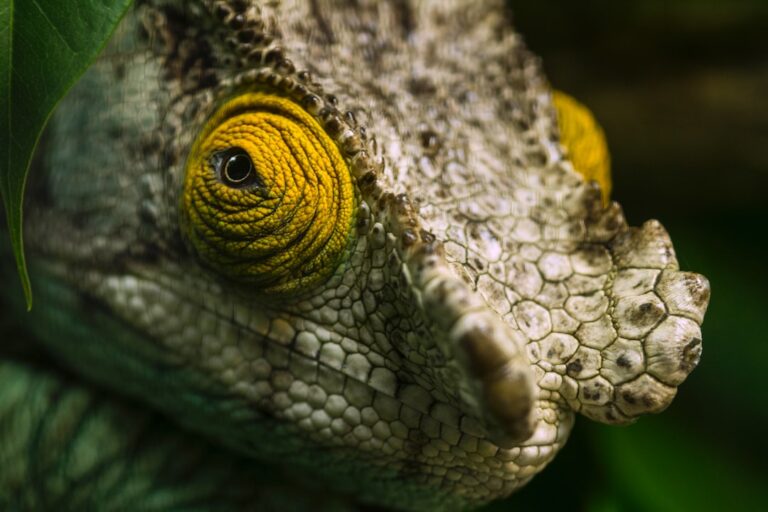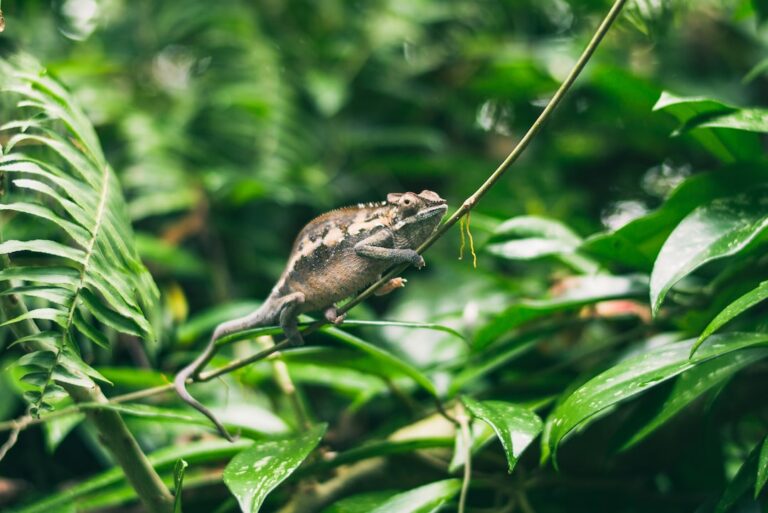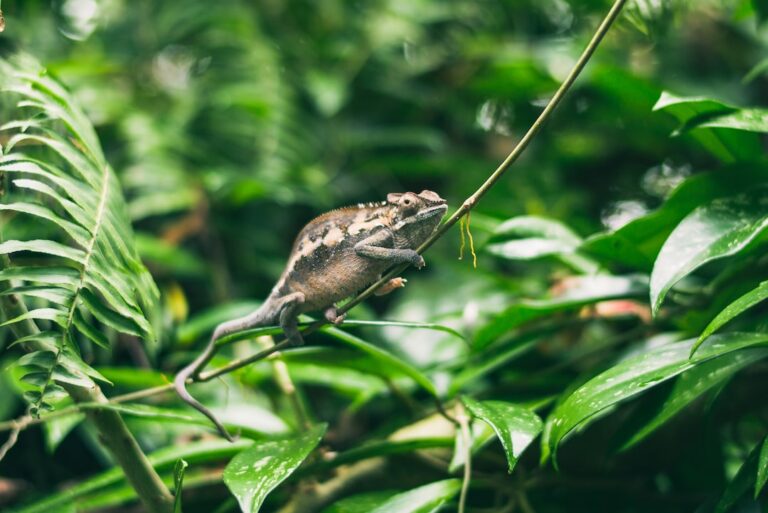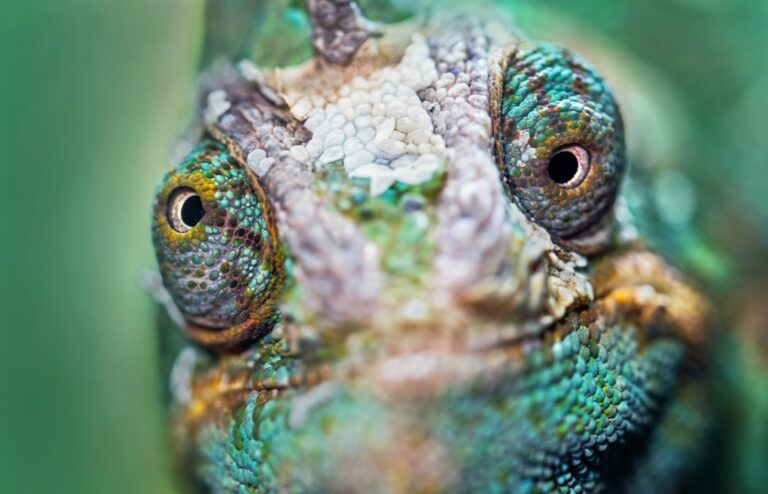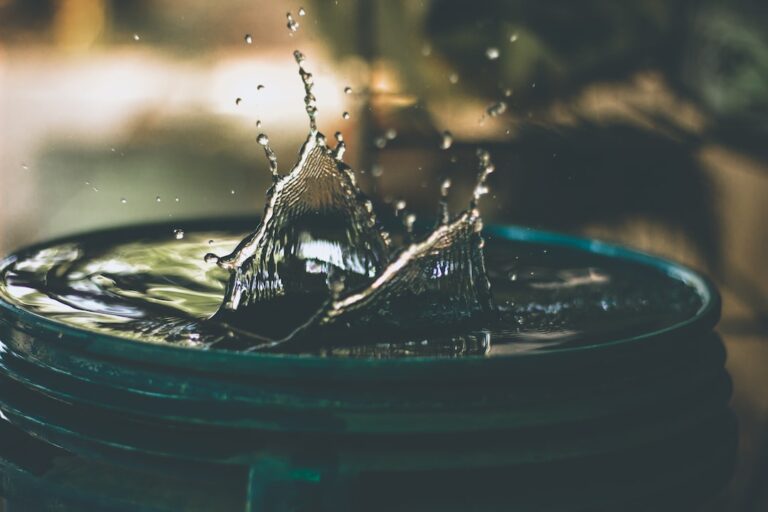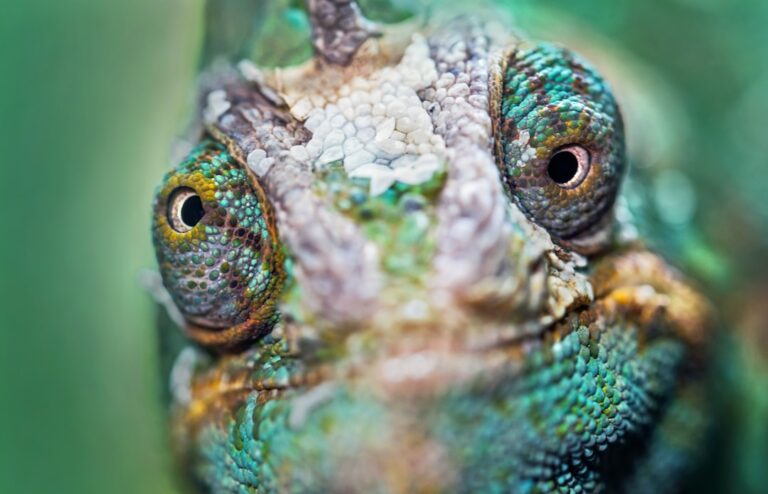Can Chameleons Eat Fish?
Chameleons are fascinating creatures known for their ability to change color and blend into their surroundings. They are native to various parts of the world, including Africa, Madagascar, and parts of Asia and Europe. Chameleons are insectivores, meaning their natural diet consists primarily of insects. However, there is some debate among chameleon owners and enthusiasts about whether or not fish can be included in their diet. In this article, we will explore the potential risks and benefits of feeding fish to chameleons and provide guidance on how to properly incorporate fish into their diet.
Table of Contents
Understanding Chameleons’ Feeding Habits
In the wild, chameleons are skilled hunters. They use their long, sticky tongues to catch insects, which they then consume whole. Chameleons have a slow metabolism and do not require large amounts of food. They typically eat small insects such as crickets, flies, and grasshoppers. Chameleons also require a source of water, which they obtain by licking dew or raindrops off leaves. It is important to replicate these natural feeding habits in captivity to ensure the health and well-being of pet chameleons.
Can Chameleons Survive on a Fish-Based Diet?
While fish are not a natural part of a chameleon’s diet, some owners may consider feeding fish to their chameleons due to convenience or availability. However, it is important to note that fish do not provide the same nutritional value as insects. Fish are high in protein and omega-3 fatty acids, but they lack the essential vitamins and minerals that chameleons need for optimal health. Feeding chameleons a fish-based diet can lead to nutritional deficiencies and health problems in the long run.
Nutritional Value of Fish for Chameleons
Fish do contain some nutrients that may be beneficial for chameleons. For example, they are a good source of protein, which is essential for growth and muscle development. Fish also contain omega-3 fatty acids, which have anti-inflammatory properties and can support heart health. However, chameleons require a balanced diet that includes a variety of nutrients, and fish alone cannot provide all the necessary vitamins and minerals. It is important to supplement a fish-based diet with other foods to ensure that chameleons receive all the nutrients they need.
Risks and Benefits of Feeding Fish to Chameleons
Feeding fish to chameleons can have both risks and benefits. On the one hand, fish can provide a source of protein and omega-3 fatty acids. They can also be a convenient option for owners who may not have access to live insects. However, relying solely on fish as a primary food source can lead to nutritional deficiencies and health problems in chameleons. It is important to provide a balanced diet that includes a variety of foods to ensure that chameleons receive all the necessary nutrients.
Types of Fish Safe for Chameleons to Eat
If you choose to feed fish to your chameleon, it is important to select types that are safe for them to consume. Small, freshwater fish such as guppies, minnows, and goldfish can be suitable options. It is important to choose high-quality, fresh fish and avoid those that have been treated with chemicals or preservatives. Additionally, it is crucial to remove any bones or sharp objects from the fish before feeding them to your chameleon.
Preparing Fish for Chameleons: Tips and Tricks
When preparing fish for chameleons, it is important to take certain precautions to ensure their safety and well-being. Start by cleaning the fish thoroughly to remove any dirt or bacteria. Gutting the fish is also necessary to remove any internal organs that may be harmful to chameleons. It is important to handle the fish with clean hands and use separate utensils to avoid cross-contamination. Proper preparation is essential to avoid potential health risks and ensure that the fish is safe for your chameleon to consume.
Alternatives to Fish for Chameleons’ Diet
While fish can be included in a chameleon’s diet in moderation, it is important to provide a variety of other foods as well. Insects should make up the majority of a chameleon’s diet, as they provide essential nutrients such as vitamins, minerals, and fiber. Crickets, mealworms, and roaches are all suitable options for chameleons. Additionally, chameleons can benefit from consuming plant matter such as leafy greens and fruits. It is important to offer a diverse range of foods to ensure that chameleons receive all the necessary nutrients for optimal health.
How Often Should You Feed Fish to Your Chameleon?
If you choose to feed fish to your chameleon, it is important to do so in moderation. Fish should not make up the majority of their diet, as they do not provide all the necessary nutrients. Feeding fish once or twice a month can be a suitable frequency, but it is important to supplement their diet with other foods such as insects and plant matter. It is also crucial to monitor your chameleon’s health and adjust their diet accordingly. If you notice any signs of nutritional deficiencies or health problems, consult a veterinarian for guidance.
Is Feeding Fish to Chameleons a Good Idea?
In conclusion, while fish can be included in a chameleon’s diet in moderation, they should not be relied upon as a primary food source. Fish do provide some nutritional value, such as protein and omega-3 fatty acids, but they lack the essential vitamins and minerals that chameleons need for optimal health. Feeding chameleons a fish-based diet can lead to nutritional deficiencies and health problems in the long run. It is important to provide a balanced diet that includes a variety of foods, including insects and plant matter, to ensure that chameleons receive all the necessary nutrients.
If you’re curious about what chameleons can eat, you might also be interested in learning about their unique ability to breathe underwater. Check out this fascinating article on reptilefriend.com to discover if chameleons have the capability to survive underwater and how they adapt to this environment.


